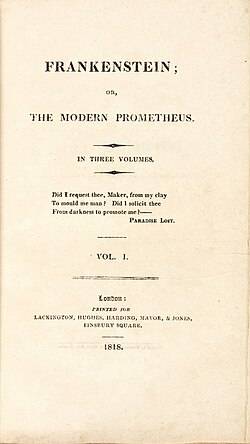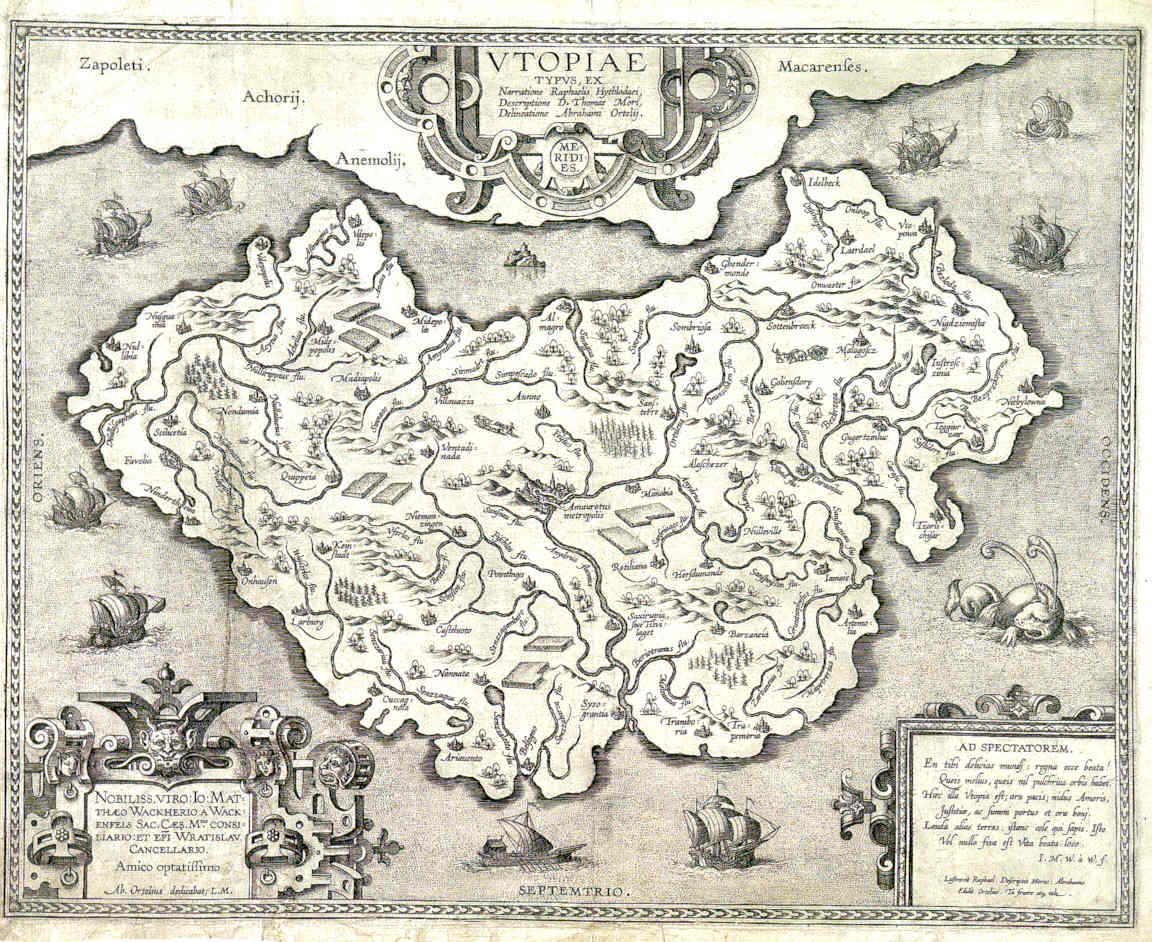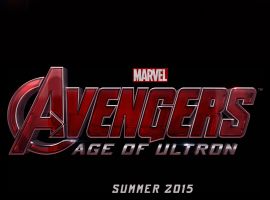I hope you’re strapped in. We’re about to travel back 195 years to a time when science fiction was still in its infancy. Today, we’re going to look at the future according to the 1820s.
Two years before, a young woman had revolutionized fiction with a story she had written for a competition between friends. Frankenstein, by Mary Shelley, combined elements of literature that had come before with scientific speculation of the day to make a stunning commentary on human nature.
1820 was science fiction’s first full decade, and the genre was already far ahead of its time.
History:
The mid-nineteenth century was a time of global political upheaval. The American revolution inspired nations around the world to fight for their own liberation, and establish their own constitutions. A wave of Constitutionalist revolutions hit southern Europe in the year 1820. They were followed by the Mexican revolution, in which Mexico won independence in 1824, and the Decembrist revolution in Russia, which took place in December of 1825.
Great Britain saw new developments in their legal system, when the death penalty was repealed for over 100 crimes in 1822, and means of punishment such as drawing and quartering, and flagellation became antiquated.
The United States was in the midst of a great debate concerning slavery. In the 1820s, slavery was still legal, but some slaves who had been freed were allowed to return to their continent of origin. In 1822, the first freed slaves arrived in Africa and settled in the American colony of Liberia.
In order to avoid the conflict in Europe, the United States instituted the Monroe Doctrine in 1823, which effectively severed relations between the old world and the new. However, the nation experienced conflict of its own during the election of 1824 when John Quincy Adams was elected president, despite the fact that his opponent, Andrew Jackson, had won the popular vote. Frustration over this issue was one of the factors that led to the development of the modern Democratic party.
Science:
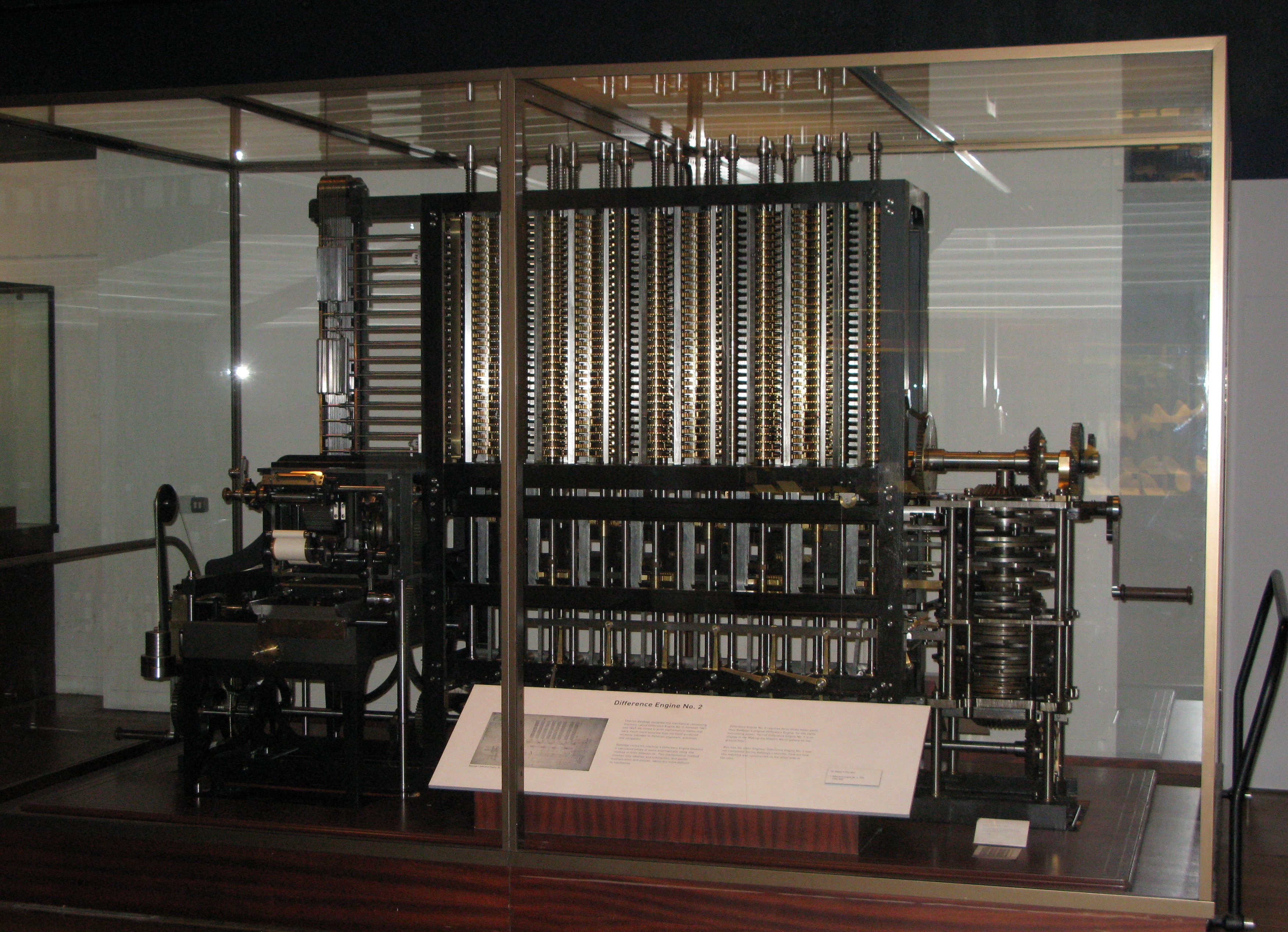
(A Difference Engine)
Many explorers doubled as scientists in the nineteenth century. This was especially true of those undertaking expeditions to the Antarctic. In 1820, a Russian expedition came very near the coast of the mysterious continent. Later that same year, British Naval officer Edward Bransfield arrived at the northernmost point of the Antarctic mainland.
At the same time, in a completely different field of study,Hans Christian Ørsted, discovered the relationship between electricity and magnetism. Already, electricity was important to science fiction and to society.
In 1822, the Rosetta Stone was unearthed by Archaeologists, and used to decipher Ancient Egyptian hieroglyphics.
Also during that year, Charles Babbage proposed his “Difference Engine”- a calculation device that was an early ancestor of the computer.
The Stockton and Darlington Railroad opened in 1825, and served as the first railroad to implement steam-powered trains. In 1826, the patent for the internal combustion engine was given to Samuel Morey, and the oldest existing photograph was taken.
The electric motor was developed by Anyos Jedlik in 1828, and the next year, William Burt received the patent for a very early typewriter.
Stories:

Mary Shelley wrote a second novel in 1826 called, The Last Man. It tells the tale of a plague that ravages earth in the far future, and follows the lives of the survivors. This novel was not well received. Evidently, it let down readers, who were hoping for something of the same caliber as Frankenstein. However, The Last Man serves as a precursor to stories of apocalyptic pandemics, including the zombie subgenre that is hugely popular today.

An American politician named George Tucker contributed to the genre in 1827 with his satiric story, A Voyage to the Moon. Using the pseudonym Joseph Atterley, he described the civilizations of the Lunarians in order to parody some of his political colleagues, and faulty scientific ideas of the day.

Jane C. Louden’s The Mummy! was similar in many ways to Frankenstein, as it involved a reanimated corpse. However, it is unique as the story takes place in the twenty-second century, where technology is highly developed. It is also one of the first novels to utilize the “mummy’s curse”. It seems to have been quite timely, as the Rosetta Stone was discovered just five years prior to its release.
Worldview:
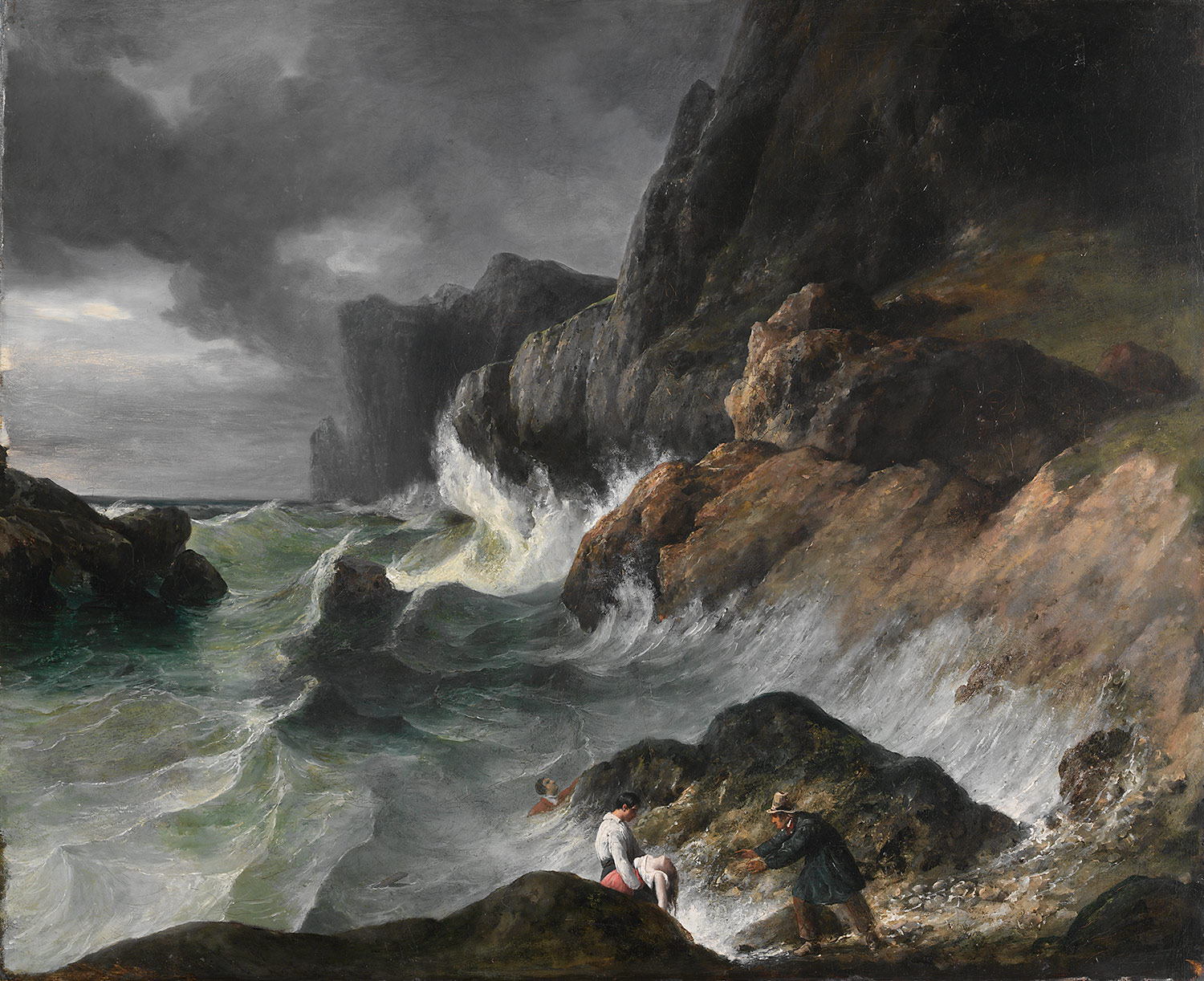
(
Stormy Coast Scene after a Shipwreck- Horace Vernet)
In response to the increasing industrialization of the western world, many thinkers in the early nineteenth century embraced Romanticism, an offshoot of Enlightenment thought that emphasized nature, imagination, and overwhelming emotional experiences. This inspired the focus on horror, amazement, and awe in early science fiction.
Because nature was so central to Romanticism, it was considered an atrocity to try to master it. Therefore, when Victor Frankenstein brought life from lifeless flesh, he experienced deep mental anguish and horror. He was attempting to upset the balance of nature.
However, it is clear that Frankenstein was also trying to play God, and create his own race of superhumans. This is the same basic intent Eve had when she ate the fruit in the Garden of Eden. She wanted to be like God. Both the historical Eve, and the fictional Frankenstein experienced the ghastly consequences of elevating themselves to the place of the Most High.
(If you want to read more about the idea of humans trying to create life, check out this post!)
We see from the very beginning, science fiction was answering deep questions about the human condition. These are important themes for us to think about as believers, and there are many truths we can draw from the stories that ask them.
Conclusion:
The world was changing quickly. Political structure, science, and philosophy were transforming more rapidly than ever before. The 1820s ushered in a new era of storytelling, a new mythology that compensated for the strange, new world around it.
Keep on glowing in the dark,
Elora



